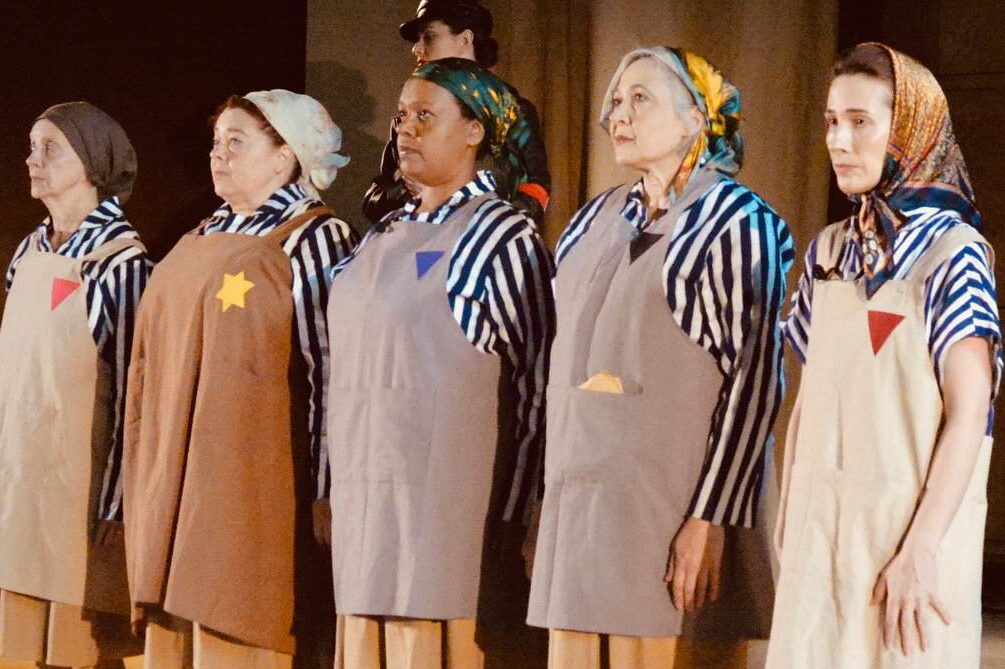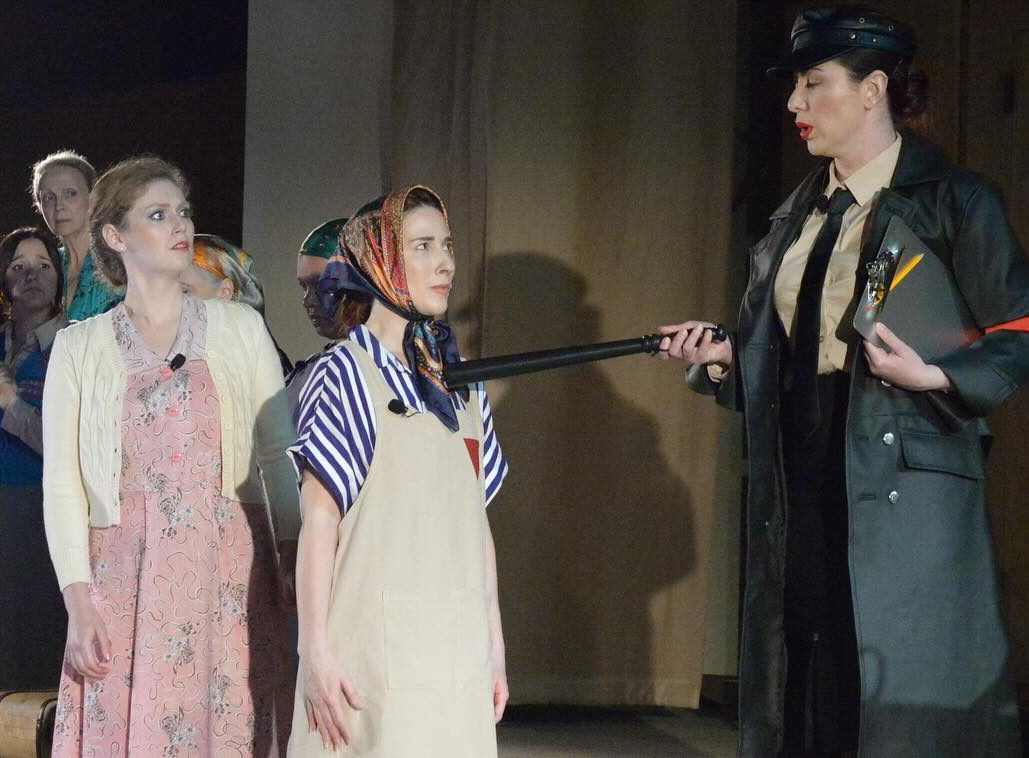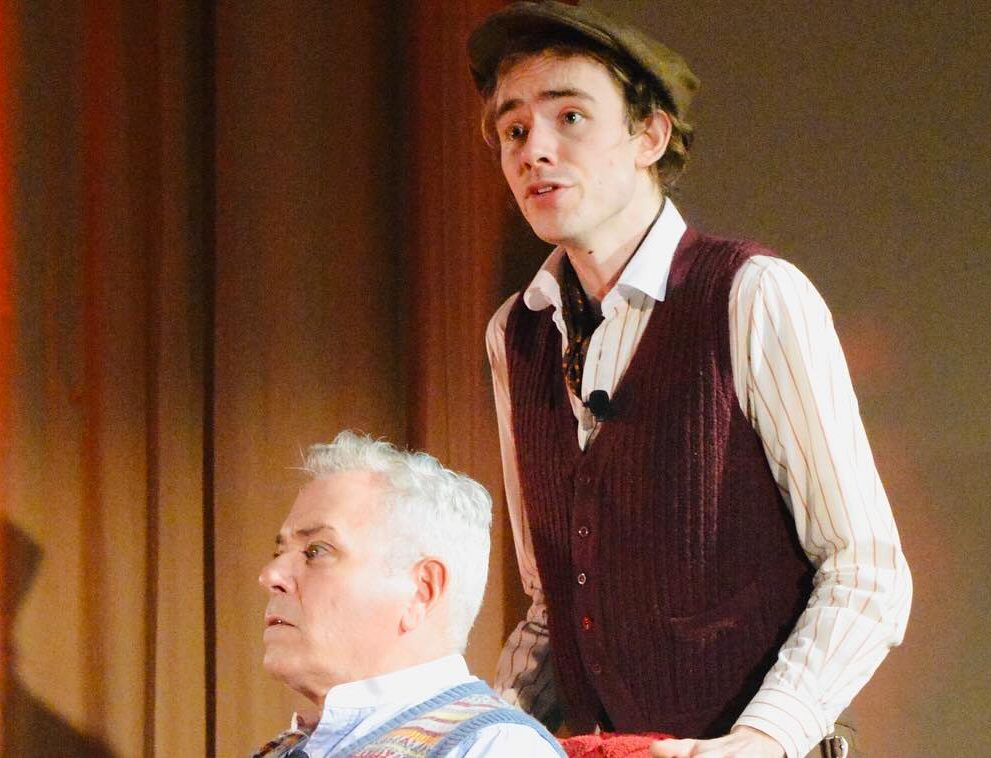by Stephanie Manning

More than just an inner monologue, this lyric from Jake Heggie’s Two Remain is really the thesis of the entire opera.
Telling the stories of two Auschwitz survivors through music is no easy task. But Heggie’s work approaches the subject with sensitivity and lyricism — as did the cast and crew of the Nightingale Opera Theatre on September 28.
After performances in Australia this summer, the production came to Cleveland for a one-night-only performance at Congregation Mishkan Or in Beachwood. While not a traditional opera venue, the location made perfect sense given the subject matter, and the creative team used some clever lighting and staging choices in the limited space.
The first survivor of the two that remain is Krystyna Żywulska, a political prisoner who hid her Jewish identity in Auschwitz via a fake name. Soprano Lara Troyer lent her strong, emotional voice to the portrayal of older Krystyna, who is grappling not only with the difficult memories of her youth but also her anger at being asked to record those memories for research.
Krystyna’s younger self, Krysia, prevents herself from succumbing to despair in the camp by making up small songs that she shares with the people around her. Krysia (Melissa Davis) often sings in trio with Zosia (Linda Barcan) and Edka (Karen Van Spall), and her warm friendship with the two older women is a highlight of the entire work.

“A survivor is not a hero,” Edka tells Krysia. “A survivor is…a survivor,” Krysia and her future self respond.
There are some rare moments of joy amid the utter desperation, like when Krysia entertains her friends with the upbeat song “Miss Ziutka.” The madly-typing Miss Ziutka pauses only to push her typewriter back to the beginning of a line — a movement comedically timed with some music cues.
Heggie’s music is more accessible than overly contemporary, with both rhyming lyrics and memorable melodies, and features a small chamber ensemble of strings, flute, and clarinet (led by John Simmons). Act II ramps up those aspects with songs like “Golden Years,” which remembers the high-spirited gay clubs of 1930s Berlin. Gad Beck, another Jewish Holocaust survivor, re-lives these memories when he is visited by the ghost of his past lover, Manfred.

Two Remain combines what was originally two one-act operas and a song cycle, so the slightly different dramatic approaches can make the stories feel slightly disjointed. But the whole cast converges at the end for a stirring song (allowing Eric van Baars to break out his deep baritone). And the stories are also united in a shared grief, one that can only be expressed or remembered via music.
“The words of a survivor are like stars in the sky,” Krystyna Żywulska sings in Act I. “They illuminate only a tiny piece of the past.” So much emotion remains unspoken — because for some melodies, there truly are no words.
Published on ClevelandClassical.com October 2, 2024.
Click here for a printable copy of this article


